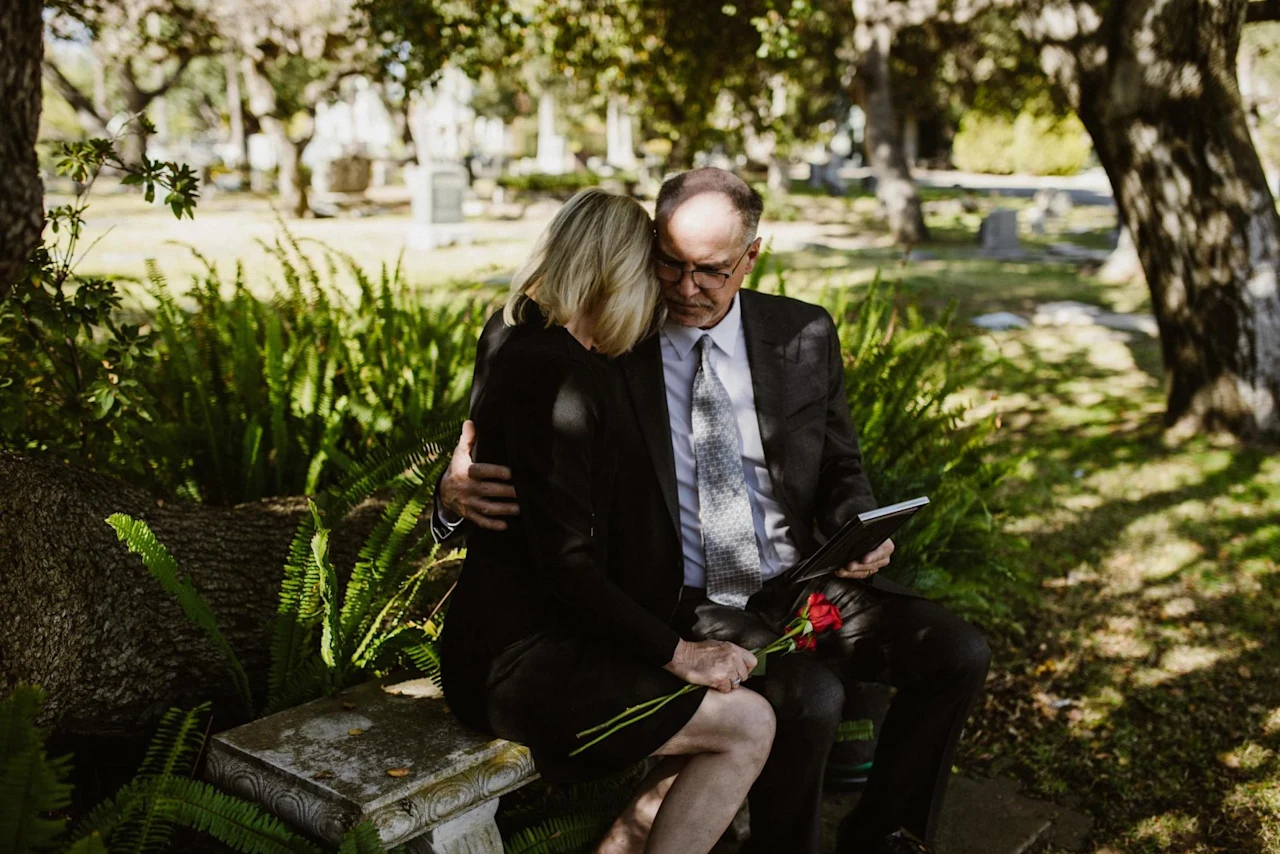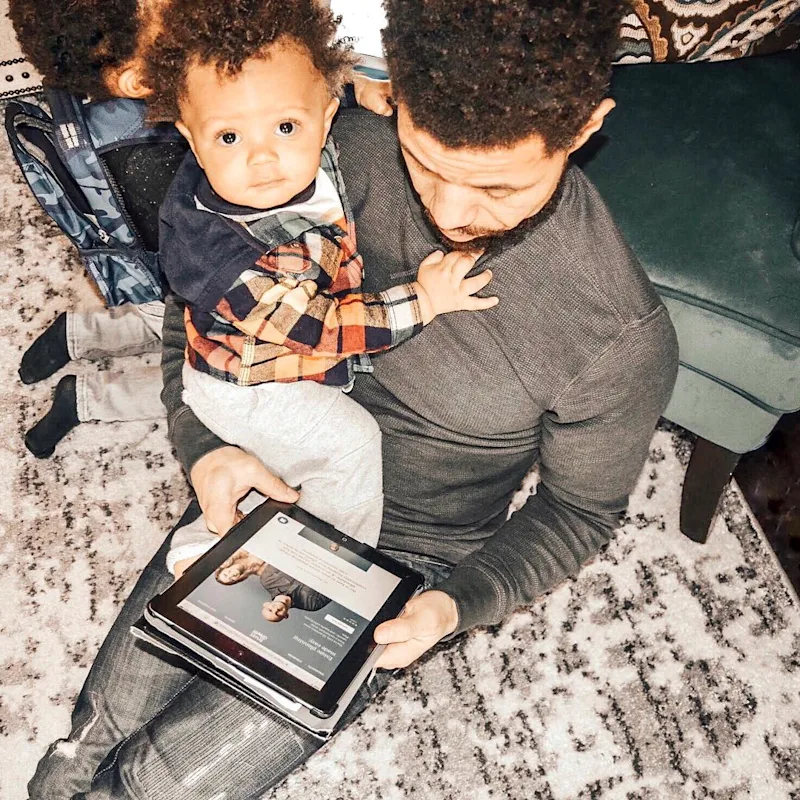
Someone died, now what?
Losing a loved one is terrible, but you can move towards peace of mind when you’re prepared. Learn from our partners at Memoria the steps to take after someone dies.

By Memoria Team
End-of-Life Planning Services, Memoria
Losing a loved one is incredibly difficult– not only for the grief experienced, but also because of the practical steps needed to execute their end-of-life plans. In this guide, we hope to alleviate some of that stress. Read on to learn the steps you need to take after someone dies.
What Needs Your Immediate Attention?
Get a legal pronouncement of death. If your loved one dies in a hospital, a nursing home, an assisted living facility, a doctor or nurse will declare a time of death. If they passed away at home while not under the care of a medical professional, call 911. Depending on where they live, the paramedic will pronounce the death or your loved one will be taken to a hospital for a doctor or nurse to make the declaration.
Determine if they are an organ donor. If they passed away at home, call a local hospital to take care of this process. If they died at a nursing home or similar facility, they should be able to connect you with the appropriate authority for organ donation.
Arrange transportation of the body. If your loved one died in the hospital or in a care facility, their staff will usually move their body to the morgue. Contact a service provider to move the body to their facility. A specialist at the hospital or nursing home can usually help you with this step.
Take care of yourself by informing immediate family or close friends. They’ll be able to help you with the many tasks you’ll need to do in the coming days and weeks, including making funeral arrangements.
How to make funeral arrangements
First, find out about existing funeral and burial plans. If your loved one didn’t mention anything or leave any instructions behind, call a family meeting to have the first conversation about what the funeral will look like. You’ll need to discuss what the person wanted in terms of a funeral, what you can afford and what the family wants.
Types of burial
When it comes to funeral arrangements, the first decision you’ll have to make is the type of burial. This will dictate who you should get in touch with and what subsequent decisions have to be made. It's an important way that their memory will be kept alive forever so you'll want to weigh your options carefully.
An in-ground burial implies the body of the deceased is interned in a casket and subsequently placed into a vault or other burial container and buried beneath soil at a gravesite. A gravestone engraved with an epigraph is typically placed at the gravesite and serves as a memorial.
An above ground burial is similar in that the body of the deceased is kept in a casket, but the casket is preserved at a public or private mausoleum or lawn crypt.
A cremation is the final disposition of a deceased body through burning and is the alternative to a casket-based ceremony. This option is accepted in many religions, although prohibited for Muslims and some members of conservative Jewish sects. Cremation can be a great option for those who wish to take part in a “scattering of ashes” service or keep their loved one in a ceremonial urn; it is also the most cost-effective funeral type.
Natural burials are an option for those who wish to pursue an eco-friendly funeral. This process does not use embalming fluid, a casket, or vault and instead allows a body to decompose naturally into the earth. The grave is even dug by hand without help from heavy machinery. A "Green burial" goes even further, where the cemetery uses no artificial pesticides and none of the bodies buried in a green cemetery can have been embalmed or buried in a traditional casket.
Types of memorial services
There are many different types of funeral services and ceremonies. It can be difficult to keep them all straight in your head, or even to differentiate between the various terms. Find out what to expect at each of them. If the planning becomes too much, let Memoria help you curate the perfect ceremony.
Funeral service is a formal ceremony that is based on the religious and cultural beliefs of the deceased. At this type of ceremony, the deceased’s body must be present and must not be cremated, which is why it takes place within a few days of the death. Family and friends of the deceased attend and pay their last respects to the deceased and their immediate family. This service is typically held at a more traditional or religious venue such as a church, temple or funeral home. You may wonder how long funerals last – this will depend on factors like culture and religion but usually expect the service to last between half an hour to one hour.
Memorial service or Celebration of Life service is similar to a funeral with one difference: the body is not present implying the ceremony can take place any time after the death, from days, to a week to a year. A memorial service can be held virtually anywhere that you or loved ones prefer. If your loved one had a special or favorite place such as a park, golf course or hiking trail, consider that location as an option.
Wake or viewing is held before the funeral or memorial service as a time for close friends and family to gather together to say goodbye to the deceased.
Visitation also happens before a funeral or memorial, but the body is typically not present during this event. People use visitations to express their sympathy and support for the family without the time constraints of a funeral.
Graveside service is similar to a traditional funeral, except the service happens at the grave before the burial. You can choose to plan a funeral service first with all your friends and family, and then a more intimate affair at the graveside with only your closest loved ones. Or you can simply plan a graveside service. Some families choose to lay flowers on the casket before it is lowered into the ground as a final goodbye.
Funeral Reception is customary (but not required) following a funeral or memorial service. This gathering offers friends and family the perfect way to get together and share special memories of the deceased. With funerals becoming more customized, receptions can range from casual family home affairs to a sit down meal at the deceased favorite restaurant, park, golf course, etc. The reception can be as simple or as elaborate as you like.
What needs to be done
Once you’ve decided on the type of burial and service, you’ll need to start working through the following tasks:
Select and call a funeral home or cremation provider
Pick a location for each service
Arrange transportation of deceased to service(s)
Arrange transportation of immediate family to service(s)
Choose clothing and styling of the deceased (if body present)
Pick pallbearers to carry casket (if body present)
Book an officiant – will typically preside over the ceremony (ex. priest)
Decide who will deliver and write the eulogy
Pick readings (scriptures if religious ceremony)
Choose music – can feature live or recorded music, as well as special songs that meant something to the deceased.
When it comes to purchasing items that will be part of the service, such as a casket or urn, we do not recommend purchasing those at the Funeral Home. Why? First, inventory is usually low and you may find an option you prefer online, second prices online are usually much cheaper. If you feel a little overwhelmed and want to shop from a curated selection, we recommend checking Memoria for modern and affordable styles. Here is a list of items you'll potentially need to purchase:
Casket or Urn
Grave markers (if cemetery burial)
Flowers
Funeral programs
Photo slideshow
Memorial items
Lastly, you’ll want to inform family and friends of the death and share Funeral service details. To track down all those who need to know, go through the deceased’s email and phone contacts.Inform coworkers and the members of any social groups or church the person belonged to. Ask the recipients to spread the word by notifying others connected to the deceased. An effective way to do this is creating an Obituary online. By using Memoria, you can publish the obituary, share service details, enable guests to share memories and collect donations – all for free.
About Memoria: Do you have more questions or considerations about the funerals? Speak to a caring and knowledgeable Funeral Advisor at Memoria. We are experienced in this industry and will guide you through the many hurdles from start to finish. This is a difficult time in your life and you shouldn’t have to face it alone.
Do you have your own estate planning taken care of? At Trust & Will, we’re here to help keep things simple. You can create a fully customizable, state-specific estate plan from the comfort of your own home in just 20 minutes. Take our free quiz to see where you should get started, or compare our different estate planning options today!
Is there a question here we didn’t answer? Browse more topics in our learn center or chat with a live member support representative!
Trust & Will is an online service providing legal forms and information. We are not a law firm and we do not provide legal advice.
Last updated: March 21, 2025



